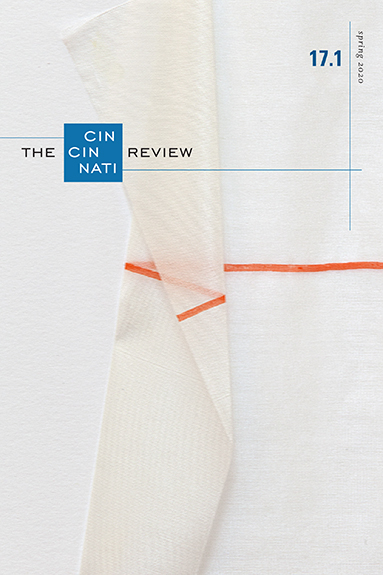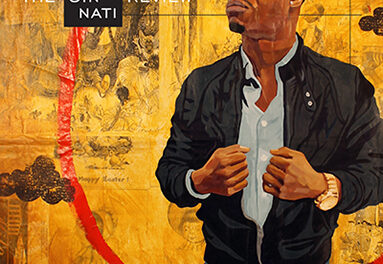ROSALIND: They say you are a melancholy fellow.
JAQUES: I am so; I do love it better than laughing.
—As You Like It
Underneath this flabby exterior is an enormous lack of character.
—Oscar Levant, An American in Paris
Oscar Levant is a melancholy figure, full of barbed wit, self-loathing, and Rhapsody in Blue, which he performed more than any other twentieth-century pianist. You may not know who he is, though Jack Paar used to go off the air after a time, saying, “Good night, Oscar Levant, wherever you are.” Jimmy Durante used to say, “Good night, Mrs. Calabash, wherever you are,” and no one ever knew who she was, so that must have been disconcerting.
Oscar Wilde, you undoubtedly know, but you may think of him as staring languidly into the camera, dressed as a dandy, self-pleased.
I think of my two Oscars as trying to say the perfectly witty thing as a way of staying the melancholy that dare not speak its name. I think of wit as a stay against melancholy, a brief moment of verbal perfection, before its self-immolation: time.
Our attitude toward wit is what have you said for me lately. Wits, whether Dorothy Parker or Oscar Levant (friends, by the way), or Oscar Wilde or Samuel Johnson, make their own traps that wit springs them out of: expectation. The only way a wit can stop being a wit is to be dull, a melancholy resolution.
Oscar Levant looked a bit like a cross between Leslie Caron and Delmore Schwartz on a bad day, except for his long fingers, which must have played Rhapsody in Blue a thousand times. If you don’t know who Leslie Caron and Delmore Schwartz are, let’s say he looked like a moon for the misbegotten, with bad teeth. I keep asking if you know who people are—that really means I’m concerned about my age, and yours. Whether this is a December-May essay, which might be a melancholy affair.
Oscar Levant had moony eyes, like Leslie Caron, with whom he starred in An American in Paris, when he was known as one of the wittiest men in America. This was before he spiraled into multiple psychiatric commitments, addiction, and electric shock therapy. He would emerge one of the wittiest broken men in America and the first full-fledged American performative psychodrama: he prefigured reality TV and the performance comedy of the neurotic self in actor-comedians like Woody Allen, Larry David, and Louis C.K. “What do you do for exercise?” Jack Paar asked him in 1959. “I stumble and fall into a coma,” Levant said. That, of course, would relieve him of his wits, the Old English gewitt as the base of consciousness. If melancholy, not brevity, is the soul of wit, perhaps it is because sadness is our natural fallen state—awareness is a painful condition.
Melancholia, you may already know, derives from the Greek (which seems rather perfect to me; one person’s epic hero is another’s sad, anxious wanderer or monomaniacal and impulsive oppositional type with authority problems), melaina chole translated into Latin as atra bilis and English as the black bile, an excess of which caused, and perhaps still causes for all we know, chronic sadness, which is, according to Hippocrates in the fifth century BCE, one of the four humors, or temperaments, along with the sanguine, the choleric and the phlegmatic. Aristotle, as far as we know, wrote the first essay on melancholy, at least the first that survives. Seneca, in De tranquillitate animi, notes the difficulty of pinning down melancholy, or violent sadness, in name or cause. Burton, temperamentally rather different than Seneca, would ease his melancholy by musing over just this difficulty for hundreds of pages, to our delight. And the temperaments are still being tossed around in the twentieth and twenty-first century: Balanchine and Hindemith collaborated on The Four Temperaments, Carl Nielsen composed a symphony called The Four Temperaments, the Waldorf schools rely on a version of them in their pedagogical ideology (so if you have melancholy children, relax, you know where to enroll them), and so on.
The Hippocratic, or Temperamental, school of thought merged or married with the Latin in the form of Galen in the second century, and melancholy began its slow dance between this condition as problem and irremediable burden, or mark of specialness, even genius, as the melancholic looks inward, acts different, perhaps even performs a Saint Vitus’s dance of the self, and is possessed of some inordinate talent. In his journals, published as Straw for the Fire, Theodore Roethke writes, “Sure I’m crazy. But it ain’t easy.” In The Anatomy of Melancholy, Burton writes, “Why melancholy men are witty, which Aristotle hath long since maintainted in his Problems, and that all learned men, famous philosophers, and lawgivers, ad unum ferè omnes melancholici, have still been melancholy, is a problem much controverted.”
Burton also refers to the Aristotelian or pseudo-Aristotle Problema of the fourth century BCE—so the idea had melancholy legs.
As Clark Lawlor notes, in From Melancholia to Prozac, “The Renaissance saw the rise of the first form of melancholy in a flourishing of the myth of melancholic genius that has persisted up to the present day.” Marsilio Ficino, the fifteenth-century philosopher-priest, aided the union of melancholy and genius, sprinkling the discourse of love and alchemy, and finding that, in fact, every man of genius was melancholic, though the humoral conception of the body maintains, as we see in Montaigne.
In his Letters on the Aesthetic Education of Man (1795), Schiller avers that we all share in the condition of melancholia. Perhaps that’s the real beginning of the history of “depression.” Attention must be paid, when melancholy separates from genius and becomes ordinary.
In the nineteenth century, melancholy becomes pharmaceutical, at least in a more organized way, with the spreading use of opium, laudanum, which had been around since Thomas Sydenham, “the English Hippocrates,” concocted it in the seventeenth century. His recipe: opium, two ounces; saffron, one ounce; bruised cinnamon and bruised cloves, each one drachm; sherry wine, one pint. Mix and macerate for fifteen days and filter. Twenty drops are equal to one grain of opium. The results, as we know, thrilling and disastrous.
Not every melancholic is a genius. But Oscar Levant, along with his namesake Oscar Wilde, was a self-made genius, at least a self-proclaimed one, which alternated with a deep vein of self-laceration, a running theme of his witticisms. At the beginning of An American in Paris, Levant, who wrote almost all his lines for the films he was in, announces, “I’m the world’s oldest child prodigy.” Self-pity and delusions of grandeur—a classic combination! Except that Levant was an excellent concert pianist.
I’m not sure if any of us quite know what a genius is. But Levant did: it was George Gershwin, and he measured himself against Gershwin disastrously.
How melancholy to become the memorialist for the man you loved (“The Man I Love”?), and against whom you measured yourself so severely.
All of Levant’s film performances, from Romance on the High Seas to Humoresque to The Barkleys of Broadway to An American in Paris are variations on the theme of Oscar Levant, the amanuensis of love, the musical third wheel. Oscar is always there to help speed or console the romantic action. But along the way, he gives us bracing asides; he’ll tell us that “my psychiatrist once said to me, ‘Maybe life isn’t for everyone.’” He’s the tonic to the saccharine action.
. . .











